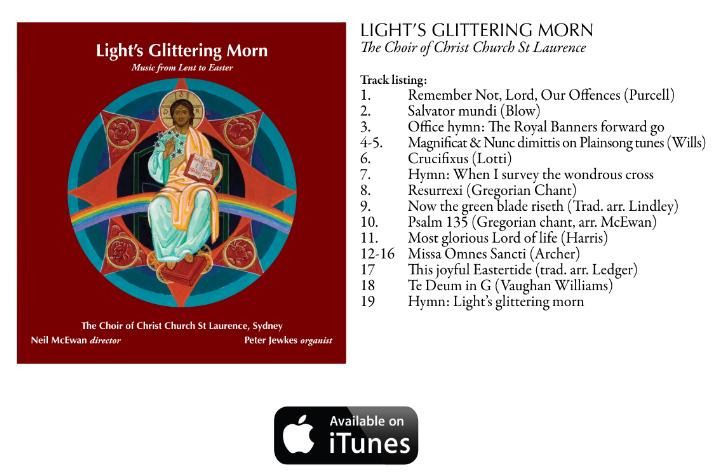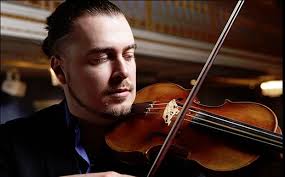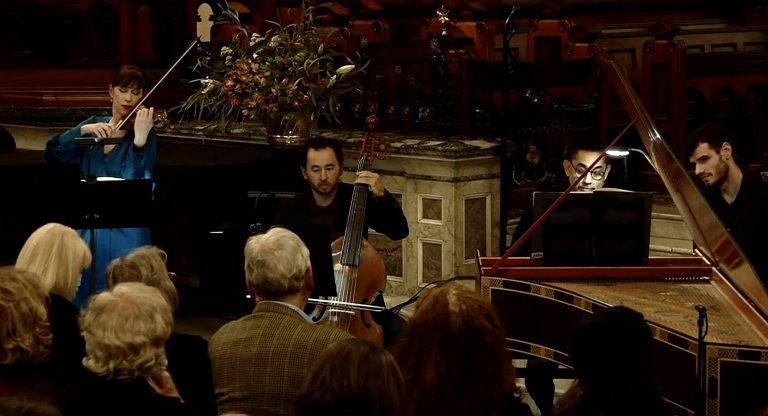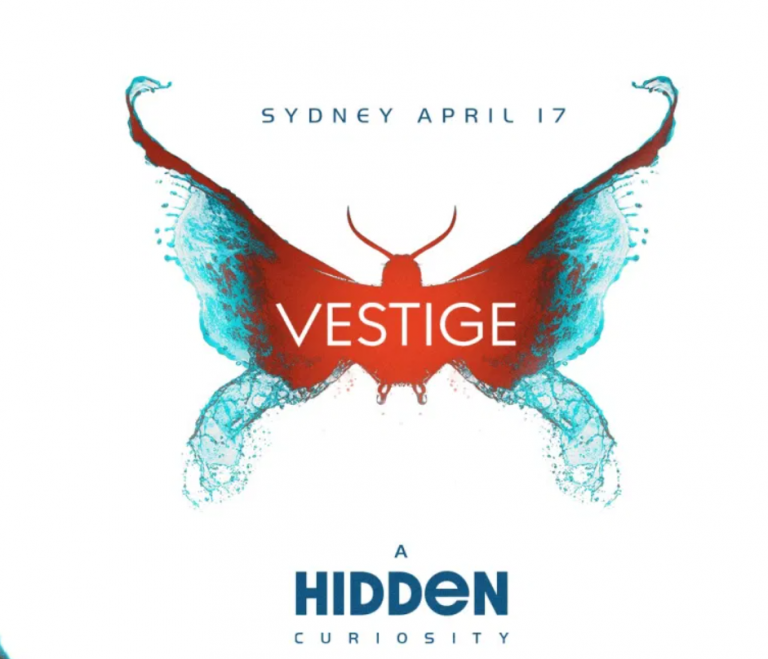Concert Review: Behold – The Sea! / Sydney Chamber Choir
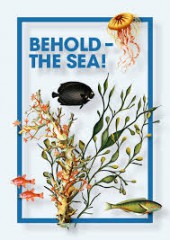
Behold – the sea!
Sydney Chamber Choir
6 October, 2018
Verbrugghen Hall, Sydney Conservatorium of Music
The Sydney Chamber Choir looked to the 9th century in its call to celebrate maritime themes in song. Launched with the haunting solo voice of Sebastian Maury delivering the words of Psalm 130 De proundis clamavi te (Out of the depths I cry to thee) set as a Gregorian chant, the words capture the despair, the loneliness and the fears of those who have plumbed the depths of the earth and indeed, of their souls. De Profundis is also the title of a powerful letter written by Oscar Wilde over three months during his difficult incarceration.
Although the restrained musical line is at odds with the intensity of the words, it sets the scene for the programme, entitled Behold – the sea! the title of Walt Whitman’s poems used by Vaughan Williams for his Sea Symphony. Maury delivered a beautifully controlled performance which pivoted into a programme of essentially 20th and 21st century music, curated by conductor Jonathan Grieves-Smith. His selections introduced engaging and inventive vocal techniques and harmonic ideas amid familiar older elements, ably accomplished in this excellent presentation by the Sydney Chamber Choir.
Behold – the sea! was an exploration of music for a new age. Novel compositional devices created refreshing new soundscapes that were adventurous, yet easy on the ear. This was an unequivocal success in contemporary programming and performance. The choir, comprising some of the best of Sydney’s ensemble singers, performed with its trademark attention to technical and musical detail, brought together by the understated precision of Jonathan Grieves-Smith, conducting with a mere pencil!
The chant moved imperceptibly into Finnish composer Jaakko Mäntyjärvi’s (b 1963) Canticum Calamitatis Maritimae, composed in 1997, placed third in the category for mixed choirs at the European Composition Competition for Cathedral Choirs that year. It commemorates the tragic shipwreck of the Estonia in 1994, which claimed hundreds of lives. The Canticum opens and closes with the women whispering the words of the Latin Requiem Mass. Soprano Lindy Montgomery’s supple yet delicate soprano floated above the whispers in a wordless folk-like ornamented melody, quoting the tune of the hymn Nearer, My God, to Thee (sung to Mason’s Bethany) reputedly played by the musicians on the Titanic as it sank. The second section, impeccably sung in chant by Sebastian Maury as the precentor, takes the words of the report of the tragedy on the Latin service of the Finnish Broadcasting Company. Finally, lines 23-30 of Psalm 107 tell of God’s redemptive power in the face of human suffering and helplessness.
The ensemble met the demanding elements of this composition with panache – the male voices humming steadfastly in open fifths, the octatonic scale, layers of imitative stretto, tonal and harmonic ambivalence and sub-divisions of the four voice parts evoking the many sounds of maritime life.
Three of the Strathclyde Motets by Scottish composer Sir James MacMillan (b 1959) were interspersed amongst the larger works of the programme. O Radiant Dawn and Lux aeterna from Set 2, were complemented by Data est mihi omnis potentas (All power is given to me) from Set 1. O Radiant Dawn received a resplendent performance with the choir highlighting MacMillan’s skilful word-painting. The explosive opening of Data est was beautifully contrasted by the descending triplet Alleluias of the sopranos, later taken up by the male voices followed by a section of columnar chords, rounded off with three ringing cries of Alleluia.
The ensemble performed MacMillan’s The Gallant Weaver set to the words of Robert Burns, with unaffected charm. Three sopranos ventured into a beautifully matched three-part canon, its rustic inflections crunching over two parts each in the lower three voices.
A bracket by two Australian composers comprising Peter Sculthorpe’s The Stars Turn arranged by David Matthews for 6 – part choir and the world premiere of Dan Walker’s (b 1978) Yúya Karrabúra challenged both the singers and the audience at many levels. The ensemble drew a distinctive picture in sound of the Australian landscape in Sculthorpe’s piece; Walker’s composition, commissioned for the choir by Ed and Jane Suttle, was far more confronting and anguished with the singers passionately capturing the powerful words of the late indigenous poet Alice Eather, caught between two cultures.
Although Nicolas Champion lived in the 15th century, this was the Australian premiere of his setting of the De profundis clamavi. Standing in horseshoe formation, the lower three voice parts gave a sensitively phrased performance deftly navigating the challenges in harmony.
Also heard in this country for the first time, British composer Cecilia McDowell’s (b 1951) Night Flight, awarded the British Composer Award in the choral category in 2014. The three songs celebrating flight set the words of the British poet Sheila Bryer and are scored for 2 soprano parts, alto, tenor bass and cello. This was an impressive pairing of choir and cello, played by Christopher Pidcock. The cello was as much a solo instrument as it was part of the ensemble. The introduction of New Moon, belonged to the cello alone, in a confronting, uneasy and excoriating passage, followed by the lower voices ominously repeating “You can be thrown off balance here” while the sopranos sang through the verses. Christopher Pidcock’s cello lines rose through the vivid word-painting and vocal tapestry, until the entire ensemble came together at the end. Crow, landing was given a much darker timbre by choir and cello, Christopher Pidcock unnervingly utilising the highest reaches of the cello’s A string. The ensemble resolved the tension with the euphonic and beautifully sustained Before Dawn embellished with a lyrical cello part that moved into a dissonant middle section before a powerfully sublime conclusion.
Violist Heather Lloyd joined the singers and cellist from the gallery for the closing item, In Paradisum by the Latvian composer Ēriks Ešenvalds (b 1977). The extended instrumental introduction sprinkled with feather light harmonics from the cello was performed with impassioned artistry against a humming chorus which blossomed into text.
Substantial programme notes with musical and historical insights gave a context to the program selections. It’s not often that an audience is mesmerised into silence, too awestruck to applause. You had to be there to feel the magic.
Shamistha de Soysa for SoundsLikeSydney©



